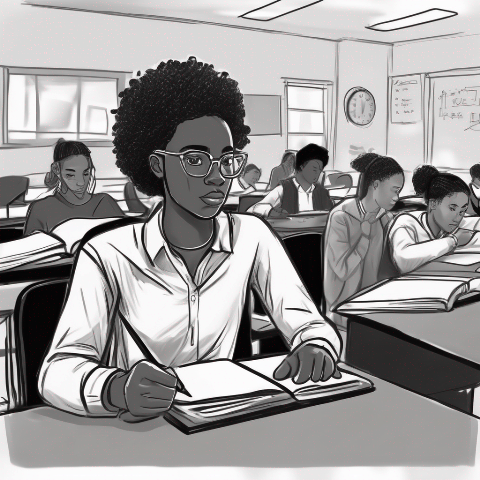
In recent years, Kilifi County has been grappling with a significant issue that has dire consequences for the education system – the low pay of teachers. This problem has reached a point where it is directly affecting school finances, leaving principals with no choice but to dip into the lunch money collected from students to pay their teachers’ salaries. This alarming situation has raised concerns about the quality of education and the well-being of both teachers and students.
One of the primary factors contributing to this unfortunate situation is the acute shortage of teachers in many schools across Kilifi County. Some schools are facing a shortage of more than 40 teachers, which has led to a compromised learning environment. To mitigate this issue, principals have resorted to hiring additional tutors through management committees. However, due to the lack of sufficient funds, these principals are left with no option but to utilize the lunch money collected from students to compensate these hired tutors.
The financial strain faced by schools in Kilifi County is further exacerbated by the delay in the disbursement of funds by the national government. The inadequate amount of state capitation allocated to schools has made it increasingly challenging for these institutions to cover their expenses. Despite high enrollment rates, many learning institutions find themselves in dire financial straits, struggling to make ends meet.
School principals, who have chosen to remain anonymous due to fear of victimization, have voiced their frustration at the insufficient state capitation. They argue that the government’s delay in fund disbursement has inconvenienced numerous programs and initiatives within their schools. Additionally, they highlight the fact that the lunch fees collected from students are not merely for food but also intended to cover the salaries of teachers employed by parents and the boards of management. Furthermore, the principals face additional challenges due to the poor payment of school fees by students’ families, further straining their financial resources.
The principals have been vocal in their criticism of leaders and politicians who condemn the demand for lunch money from students. They argue that these leaders are well aware of the numerous challenges faced by schools, including poor infrastructure and other pending bills. They believe that instead of engaging in conflict over levies, leaders should address the financial difficulties faced by schools in the county.
Water shortage is one of the significant challenges faced by schools in Kilifi County. In order to provide this crucial resource to their students and staff, schools are forced to fuel water tankers from the Kilifi Mariakani Water and Sewerage Company Ltd (KIMAWASCO). Furthermore, incessant power blackouts require schools to purchase fuel for generators, resulting in additional expenses that drain their already limited financial resources.
Kilifi North Member of Parliament, Owen Baya, has been one of the leaders openly criticizing teachers for demanding lunch fees and other additional charges. Baya argues that there is already capitation provided by the government, rendering these demands unnecessary. However, the Kenya Post Primary Education Teachers (Kuppet) Kilifi Branch Assistant Executive Secretary, Zachary Opollo, highlights the severe shortage of teachers in the county. He explains that Kilifi County has a deficit of 700 tutors, with an average of 2,000 teachers spread across 153 schools. The introduction of Junior Secondary Schools has further complicated the situation, with over 300 such schools in Kilifi lacking the necessary teaching staff.
Opollo emphasizes that the government’s focus on Junior Secondary Schools has left other schools in the county understaffed. He stresses that the shortage of teachers continues to grow, with no replacements for those retiring, leaving their jobs, or passing away. The consequences of this shortage are felt most acutely in Kilifi County, where schools struggle to provide adequate education due to the lack of teaching staff.
The reduction in student capitation from KES 22,000 to KES 17,000 has further impacted the operations of schools in Kilifi County. The reduced capitation has led to a decrease in funds allocated for specific functions, causing financial strain on already underfunded schools. Despite these challenges, the government insists that the funds should be utilized as directed, leaving principals with limited flexibility in managing their schools’ financial needs.
It is important to note that schools in Kilifi County receive only 70% of the capitation annually, with the Ministry of Education sometimes delivering books instead of remitting the funds. This lack of timely financial support from the government has left schools underfinanced and principals personally responsible for providing for their students’ needs, including food.










